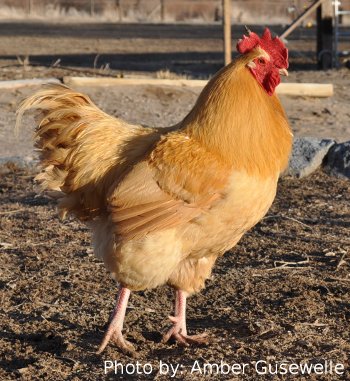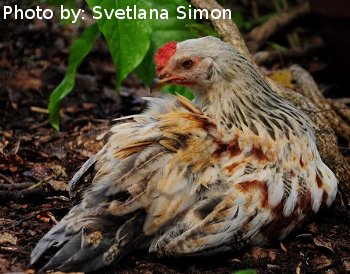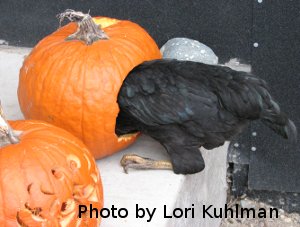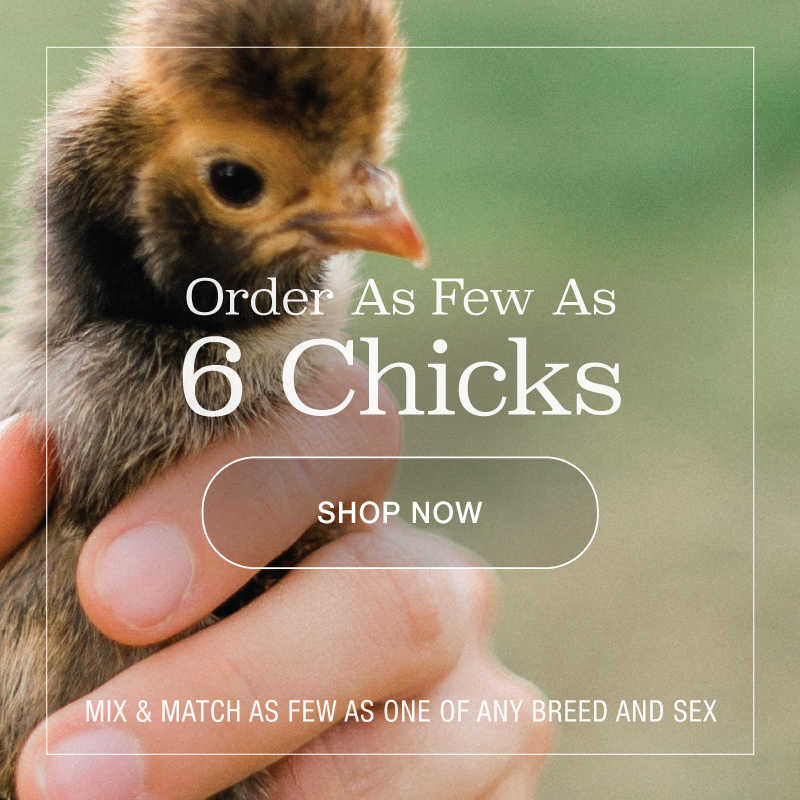Earlier this week, we asked these questions on our Facebook page: Do you have a garden? What do you grow in it? Do you use chickens in your garden?
Many people gave their answers. The answers seemed to center around three things:
- disadvantages or problems with allowing chickens into the garden
- advantages or benefits of allowing chickens into the garden
- ways to allow chickens into the garden without suffering the disadvantages
Giving chickens access to the garden can be beneficial because they can help control garden pests, like grasshoppers. Their natural scratching behavior can loosen and aerate the soil and can turn up more insects for them to eat, and they can also cut down on weed seeds in the garden by eating them.
But there are some downsides.  Chickens do a lot of scratching and dust bathing, and in so doing, they can uproot small plants or move soil around too much, disrupting beds and garden rows. They also can peck at and eat tomatoes, leafy greens, and other produce.
Chickens do a lot of scratching and dust bathing, and in so doing, they can uproot small plants or move soil around too much, disrupting beds and garden rows. They also can peck at and eat tomatoes, leafy greens, and other produce.
There are ways to use chickens  in the garden to take advantage of the benefits while limiting or preventing the damage. One of the simplest ways, pointed out in the replies we received, is to keep the chickens out of the garden when it is in production, and only allow them into the garden when preparing the garden, or late in the season, when most of the crops are spent. We will describe some other approaches in upcoming articles.
in the garden to take advantage of the benefits while limiting or preventing the damage. One of the simplest ways, pointed out in the replies we received, is to keep the chickens out of the garden when it is in production, and only allow them into the garden when preparing the garden, or late in the season, when most of the crops are spent. We will describe some other approaches in upcoming articles.



I just placed my chickens over my garden. My husband build a coop and fencing that we move around the yard. We have about fifty chickens. The chickens will winter on the garden and in the spring, we will move them to a different area and till the garden. We have very sandy soil and need to improve the quantity of the soil. We are hoping that composting and chickens will do the trick.
We have to fence in the garden because our ducks ate all of the collards and cabbage last spring.
I was raised on a farm in Iowa back in the 60’s. We always had chickens and a garden. Down through my life I have always had a garden of some sort. Once I was able to attain some land, I settled with a good husband that has the same likes and enjoys some of the same. Well we have a fairly large garden, and this year we decided to expand our chickens. I had been unable to do anything for 2 years due to an injury on my shoulder.
This year we redid our gardens, we have 3 bed’s, 1-12X12 raised, 2-25X50 and 3-14′ circular, all in different area’s of the yard. Our Chicken coops are at the north side of our yard 1-8X8 with 14X16 pen & 2-8X9 with an 10X10 pen, next to our large garden. The 8X8 is for layers. They’re in ’til around 12 noon and then the gate is opened and they go running for all their special areas. The other coop is for the strictly meat birds, and they don’t have the luxury of freedom, however everything that would normally have gone to compost goes to them.
We are having a problem with the quack grass and other nasty grasses in out large garden, so we are going to spade the sod off, which will all go to the locked-ins. All the weed’s I have pulled and thrown in the 10X10 should be over flowing but you could not even tell that there was one weed thrown in there. We just might rearrange the fence for the locked-ins and let them in there and not need weed barrier next year!
We did not have a fence around our large garden at first, and the freedom fighters almost totally wiped out all the garden. I would have not gotten one thing. We fenced it with 24″ chicken wire and a small steel post every 10-15′. We eliminated total loss. After complete harvest we will rearrange the fence down and let the locked-in’s have a free for all. It will be like a Christmas to them.
When we redo for next year after chicken tilling, we will till and lay down weed barrier to try to beat the grass. We will fence in the raised bed and circle bed next year as we have had some loss in those areas due to chickens. I will never give up the hens running free as they are so fun to watch and do such goofy things. This was my first year I ordered from Murray McMurray and we had only 4 chicks lost out of 100. From our old hatchery we would have expected 15-20 out of 100. I will only order my chicks from McMurray in the future. Never will I NOT have chickens and a garden again. Now for a few ducks and maybe some geese?
I have already took out most of this year’s garden with the help of my hens, ducks and geese. My ducks and geese ate everything that needed to be cleared out and saved me a lot of work. Now I am mulching the ground with a thick layer of old hay from the coops and other bales that I purchased. The chickens are out there loosening up the bales and making my job easier. I love my little gardeners.
My wife, two sons and I live on 5 rural acres in NC, and this was our second year raising chickens and first year gardening. We built three 8’x4’x12″ garden beds and covered them with fencing wire. The plants were protected from our flock of fifty birds, and we’ve had a descent harvest for the most part. The wire covering allowed the plants to grow through and the hens didn’t care much for walking on it.
If you want poultry in your garden for pest control, consider Guinea Fowl. They eat tremendous quantities of bugs and weed seeds. They are known to chase off snakes, hawks and many other unwanted visitors, and act as watch dogs, alerting you to any intruder to ‘their’ property. They will pretty much leave your garden alone (especially if you can keep them out while your plants are in the sprouting stage). “Gardening With Guineas” by Jeanette Ferguson is a great place to learn all about them.
This will be very interesting to follow. My chickens are free range and my “garden” is nonexistent because the chickens have dug up absolutely everything. I don’t want to fence my chickens so I guess I’ll have to fence the garden.
I use chicken tractors. Except for the occasional escape, there are no problems with the chickens getting into the garden growing areas. The disadvantages are: (1) Chickens are rather closely confined, more so even than in a coop and run situation, but they do get fresh forage daily. (2) Putting the tractors on the garden beds compacts the soil and the manure is too hot to use right away for planting so you have to re till it and wait a bit before planting. (3) Building the tractors takes a lot of time but can be done in the Winter months if you have the indoor space (be sure you can get the tractor out of the door when you build it). (4) There are certain weeds they will not eat and they will not eat weeds that have grown too large. (5) The tractors can block your access if located in a path and have to be moved daily which can be a problem if it has rained and the area is muddy.
Advantages include bug eating. Many harmful garden pests lay eggs which hatch into grubs that overwinter in the soil. If the chickens can get to them, you break up their life cycles. Tractors also avoid problems with predation, and allow you to locate the manure deposition where you want it. You can also use the tractors to keep the walking paths clear of weeds after the garden is in, but you do wind up walking in the manure which also doesn’t do you much good located in the path and encourages more weed growth there. However, if you plan to rototill the path and put the soil on the growing rows, or rotate the path the rows from one year to the next, it can be helpful.
You can also try confining the chickens in a hoop house or greenhouse prior to planting. If you are going to do a Fall garden where you plan to use a hoop house to extend the season, you can put the chickens in there while the outside garden is growing and then reverse the locations using wire to keep them out of the hoophouse. I do wonder, however, if predators may try to claw up the plastic in the hoophouse trying to get at the chickens once you get to the point in the season where you have the plastic up. I would like to hear from anyone who has tried that method.
After the berry season, I fenced around my raspberry patch, which I mulch heavily each year with leaves. I turned the hens loose in this area last fall, and again in the early spring. Invasive “snow-on-the-mountain” generally grows under the raspberries. The hens mowed it to the ground. While it did grow up again this year, I noticed a significantly lesser amount of this invasive weed. The raspberries are nearly done, and I will be moving the fence to enclose them again, as soon as I have pruned out the old canes; then I will turn the girls loose in the berry patch. They go wild for whatever they find in the rich soil there. Here in the city, our chicken ordinance requires a covered chicken run. In the raspberry patch I have been able to get away without netting, for the raspberry canes, in addition to camouflaging the birds, inhibit predators flying down into the coop, or the hens fluttering up and out.
I put our chickens in our fenced in garden in the spring before we plant. I’ve done this for several years. However, it seems that the chickens prefer to scratch and peck in between the raised beds which are mulched with wood chips instead of pecking in the beds. I’m thinking of just putting plastic down since the wood chips are housing slugs. Maybe then the “ladies” will scratch and peck where they are supposed to. I find that the girls do a much better job being living-lawn-ornaments and they have greatly reduced the grasshopper, cricket and spider populations around the house.
Hi Val, Can you share more about how you produce so much on 1/2 an acre. We are on a little less than 1/2 an acre and I would like some help on producing more in a small space. Thanks.
Do you have horses, cows or goats? Save the manure or drive around to those who do. I’ll bet you can get a pickup load anytime you want. Put that out in rows where you want your garden to grow and do it in the fall and let it rot in place. You can dig some in .. especially if you get high winds that could blow straw or leaves away. Chicken manure is very rich, be careful. Worms like top cover. Pull it aside in rows .. stakes and string to get them straight .. and plant your seed in it next year and do this year after year. Put garlic in thirty days before the ground freezes. Put onions in as soon as the ground is workable. The worms will come or you can buy just a few and put them there. I like Texas Red Wigglers as they break down manure. I like to leave the center rows for flowers and take my coffee cup out there with the grand children early morning.
I have been raising chickens on my 1 1/4 acre property since 1981. I bought my first flock of peeps (50 cornish-cross fryers & 25 mixed rares) from Murray McMurray and had great survivability and success with them. However, I lost most of that flock over the next year (either to the fry pan) or, mostly, to packs of marauding neighbor dog packs. Since those early days, I have gone to 6″ high field fence surrounding their 35’X40′ run area, and at night the birds are secured in the coop. Over the years, I have purchased a number of peeps from MM with their ability to accommodate mixed flock/breed orders, it gives me a chance to raise a wide variety of chickens.
My birds do get free range access to my garden area for a couple of hours in the evening when I get home from work, and are great bug hunters. However, I agree with your advice of waiting until the bulk of your bean/pea/tomato crops are picked as the birds can really tear them up. I always grow way more lettuce than the family can ever use, so I do not mind losing some to the chickens. Squash…every gardener knows that all the neighbors/friends/family get tired of receiving your excess squash crop by the end of summer, so I let some grow to outrageous sizes and toss them to my birds who really relish them.
The extra benefit of composting the coop bedding straw for use in the garden far out weighs the crop loss that I may experience from free ranging the birds in my garden.
I have a ton of ear wigs etc. on my Idaho farm. My Buff Orpington’s are two years old and have always been kept up .. we live on forty acres in the country and have birds of prey and other critters that could get them. However .. the freedom of roaming and their natural instincts could off set most of this if I keep an eye on them. What is your recommendation?
I brought 5 beauties to my home JUST for being my garden workers! As a fully organic home gardener, I use no pesticides and only use natural composting materials (from my own bins!) for our veggie gardens. We live on only 1/2 acre, yet are able to produce a year’s worth of blueberries, tomato sauces, canned green beans, frozen corn, canned spinach and chard, pea pods, raspberries, carrots, leeks, onions, and more! We also have extensive herb beds, for year-round fresh and dried herbs! My chickens spend their days roaming the garden spaces, working. I supplement their diets with a simple organic feed, which they rarely access during the summer months, but it’s there when they want it. Yeah, they do some damage, but it’s nothing compared to what caterpillars, aphids, and other various critters do to our “crops” when we’re not looking!